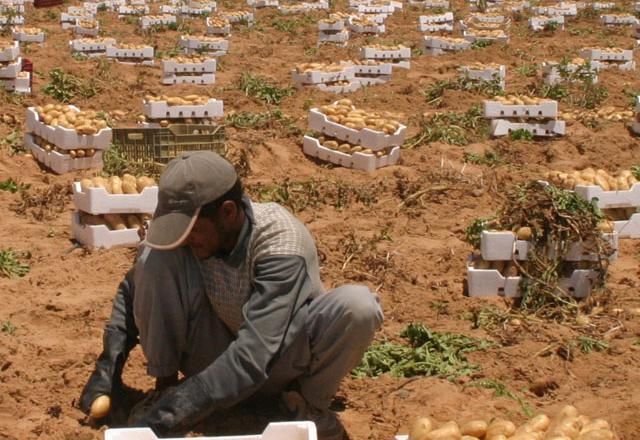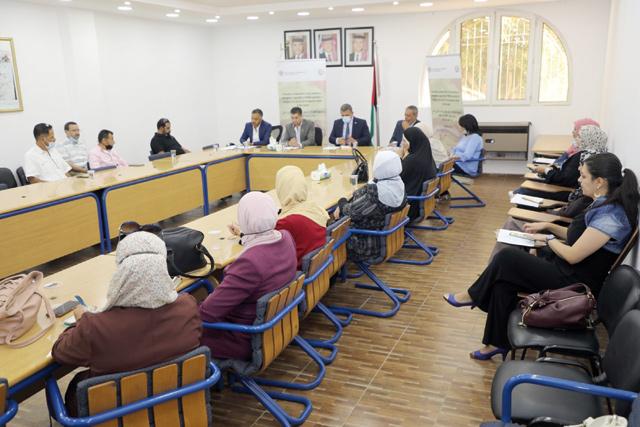You are here
‘Over 2,500 farmers benefited from field schools’
By Khetam Malkawi - May 05,2014 - Last updated at May 05,2014

AMMAN — Farmers’ education and empowerment should be a sustainable process in Jordan, especially since agriculture is one of the sectors in the Kingdom that employs guest workers, officials said on Monday.
In a country with a growing population that has almost reached 10 million, there has to be continuous education for agricultural workers, Agriculture Ministry Secretary General Radi Tarawneh said at a workshop organised by the Food and Agriculture Organisation (FAO).
Tarawneh added that the sector is very important to the country’s economy, but there are several challenges that should be overcome.
These challenges, he noted, include contradictory pieces of legislation and urban encroachment on agricultural land.
However, local crops and agricultural products are tested and free of pesticides, the official stressed.
“There were news reports claiming the opposite, while others claimed that wastewater treated at the Khirbet Al Samra plant is used to irrigate crops for human consumption… this is false news,” Tarawneh said.
During the workshop, the FAO announced the conclusion of its 10-year Regional Integrated Pest Management (IPM) project, which was launched in 2004 and also implemented in Jordan.
Andrea Berloffa, emergency coordinator and liaison officer at FAO Jordan, said the project was aimed at improving the food and nutrition security of rural populations through development and implementation of sustainable agriculture practices in six countries, including Jordan, and was expanded in 2010 to include another four countries in the region.
According to Berloffa, education and empowerment of farmers was a “key activity of the IPM programme” that is based on the utilisation of farmer field schools (FFS).
He cited figures indicating that the project established more than 150 FFS in Jordan and over 2,500 farmers — 20 per cent of whom were women — benefited from these schools.
Berloffa explained that the FFS gives farmers the opportunity to learn how to deal with problems they face on their farms, exchange experience and learn how to improve the quality of their crops.
One achievement of the projects, according to the FAO official, is the institutionalising of the FFS approach by the National Centre for Agricultural Research and Extension (NCARE).
“Since 2008, the FFS approach has been incorporated and budgeted into the annual plans of the NCARE… initiating for the first time the participatory extension unit.”
Due to its impact on the country’s agricultural sector, the project received the International IPM Award of Recognition in 2012 from the US, according to National IPM and FFS Project Coordinator Ashraf Hawamdeh.
Hawamdeh noted that the project also had a direct impact on farmers’ livelihoods and some of the FFS beneficiaries succeeded in exporting more than 800 tonnes of tomatoes and 200 tonnes of cucumbers in 2009.
Related Articles
AMMAN — The Food and Agriculture Organisation (FAO) of the United Nations completed the first day of the Farmer Field School (FFS) training
AMMAN — The Food and Agriculture Organisation, part of the United Nations, on Monday launched the Farmer Field School (FFS) training on Inte
Although Jordan achieved the Millennium Development Goal on reducing hunger in 2013, the impact of the Syrian crisis at regional and national levels is endangering this achievement, UN officials said.
















